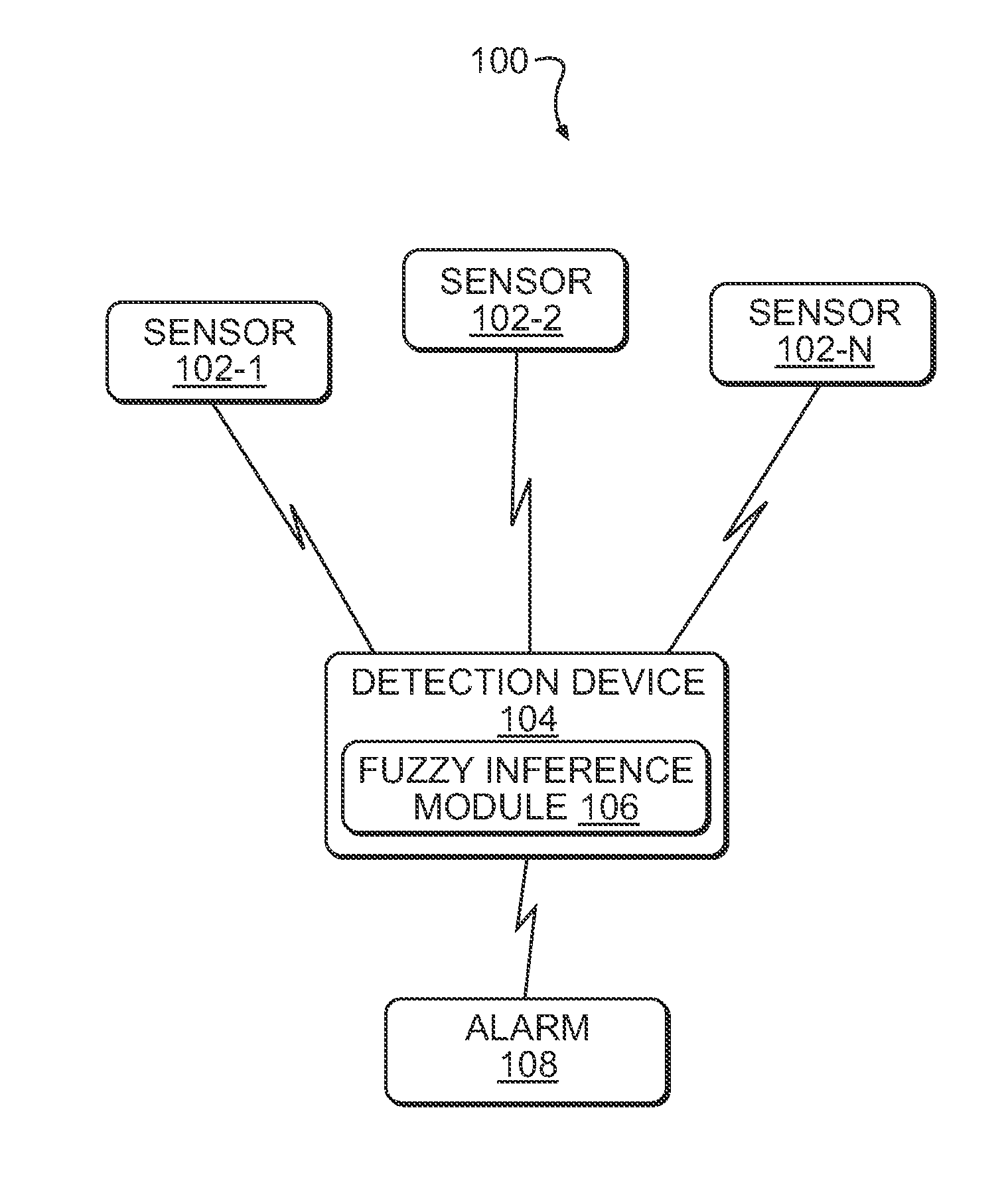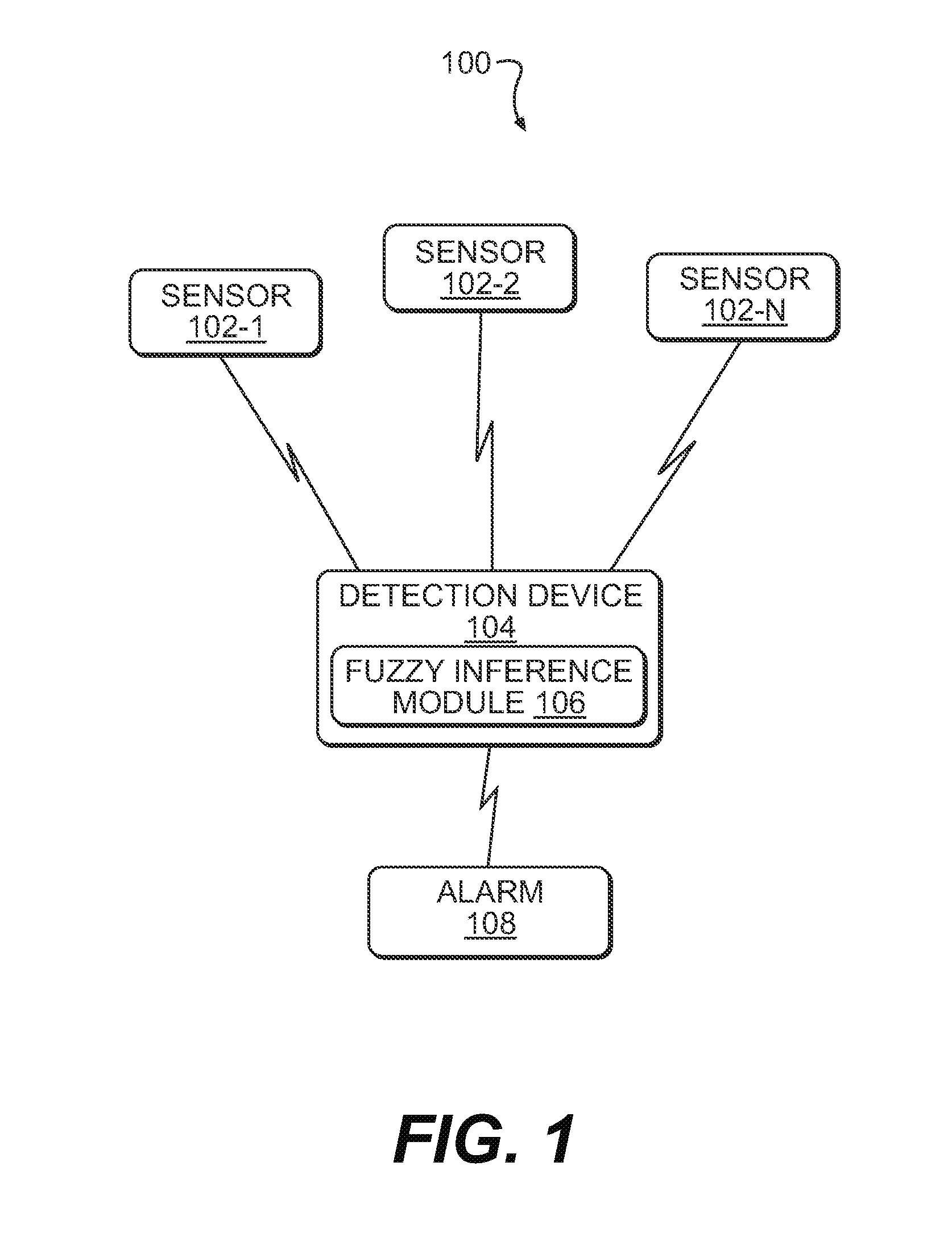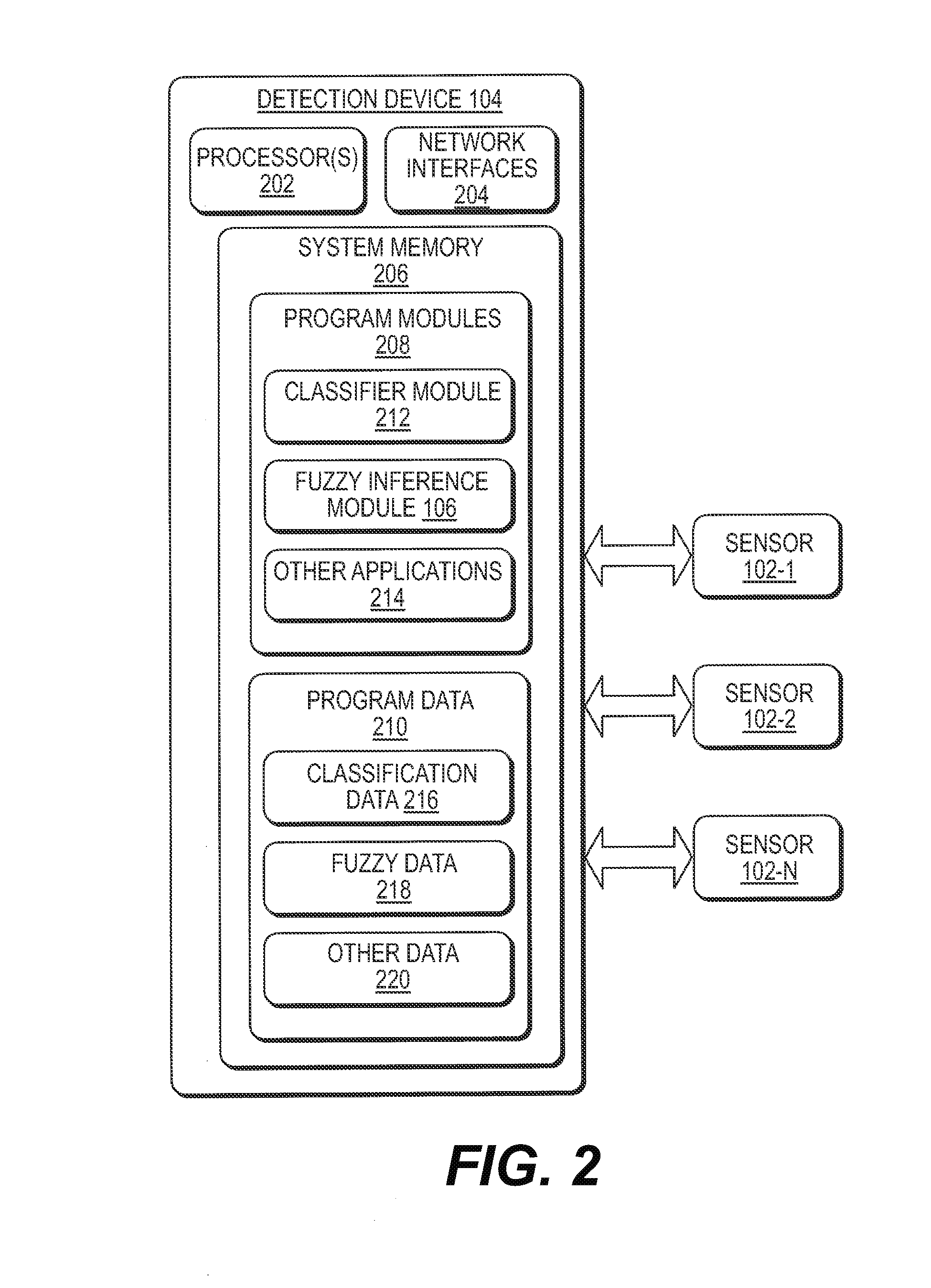Method and system for fire detection
a fire detection and detection method technology, applied in the field of smoke and carbon monoxide detectors, can solve the problems of false alarms, and inability to detect fire at the rate of rise sensor, so as to reduce the cost of the system
- Summary
- Abstract
- Description
- Claims
- Application Information
AI Technical Summary
Benefits of technology
Problems solved by technology
Method used
Image
Examples
Embodiment Construction
[0030]The invention, as defined by the claims, may be better understood by reference to the following detailed description. The description is meant to be read with reference to the figures contained herein. The specific aspects and embodiments discussed herein are merely illustrative of ways to make and use the invention, and do not limit the scope of the invention. The specific aspects, embodiments, and examples discussed herein are merely illustrative of ways to make and use the invention, and do not limit the scope of the invention.
[0031]The system and method in accordance with the present invention may provide an accurate fire detection with decreased latency of detection. The disclosed techniques relate to implementing an automated fire detection system based on a detection device, also referred to as device, which uses a combination of sensors. The sensors detect one or more attributes of that can indicate a fire, such as smoke, carbon monoxide (CO), temperature, etc. Based o...
PUM
 Login to View More
Login to View More Abstract
Description
Claims
Application Information
 Login to View More
Login to View More - R&D
- Intellectual Property
- Life Sciences
- Materials
- Tech Scout
- Unparalleled Data Quality
- Higher Quality Content
- 60% Fewer Hallucinations
Browse by: Latest US Patents, China's latest patents, Technical Efficacy Thesaurus, Application Domain, Technology Topic, Popular Technical Reports.
© 2025 PatSnap. All rights reserved.Legal|Privacy policy|Modern Slavery Act Transparency Statement|Sitemap|About US| Contact US: help@patsnap.com



